So what's Faggamuffin all about then?
all about then?
It’s the story of Cutty, a gay Jamaican who flees the country after a violent homophobic attack. He comes to the UK and stays with an acquaintance, Buju, a petty drug-dealer on the rough West London White City estate, and his resentful girlfriend Cynthia, who quickly gets sick of this ‘wasteman’ crashing on her couch. Cutty starts to fall for Buju, and starts to believe his feelings might be reciprocated – and they are, in the course of a house-burglary. Cutty and Buju start a deeply down-low relationship, but it’s when Cynthia catches them having sex that Cutty’s troubles really begin… So it’s a pacey, action-packed tale, but on another level it’s about the down low, and the particular risk of it: that it can cripple the spirit and make love impossible. Cutty and Buju have to fight to make a life they can live, and in that sense it’s about finding the heroic in the midst of the tragic.
Faggamuffin gets pretty steamy. Were you ever worried readers wouldn't be able to read it on, say, the Tube?
gets pretty steamy. Were you ever worried readers wouldn't be able to read it on, say, the Tube?
I did think about how graphic I wanted the book to be, as I know straight folks can get a bit upset reading gay sex – and my mum loyally reads all my books too. But I didn’t want to self-censor, and I think it goes to character: what sort of sex do these repressed and self-consciously intensely masculine guys have? It’s not more graphic than, say, Alan Hollinghurst. I hope people do find it sexy.
You're not a native Jamaican - was it hard to get Cutty's dialogue right?
It’s intentionally ‘patois lite’ anyway, as I wanted non-Jamaicans to follow it easily. I hope I’ve caught some of the rhythms and phrasings: black British chums of Jamaican descent who read it seemed to feel I had, and helped me with spots where I’d gone wayward here and there. I had Damian Marley playing a lot of the time I was writing the book, and have some Blue Mountain theatre tapes that helped me find the register and structures. But I’ve loved patois ever since seeing The Harder They Come when I was a student, and I was listening to a lot of reggae back then.
Faggamuffin was adapted for the stage, wasn't it? I caught the performance - (black gay singer) David McAlmont was in the audience! Tell us about that.
was adapted for the stage, wasn't it? I caught the performance - (black gay singer) David McAlmont was in the audience! Tell us about that.

Yes, by me for [the] Louder Than Words theatre event. Nathan Clough, who played Cutty, and is himself black British of Jamaican descent, actually said the language was somewhat of his father’s generation, and that modern patois is much more infused with African-American slang. I’d registered that from listening to music, but tended to play that aspect down for fear of creating the impression that I was writing an inaccurate mish-mash of Jamaican & black American registers.
I stupidly thought that as I had the plot and characters, turning the book (which is full of events) into a play would be quick and easy. It was in fact painfully slow and total torture, and on the day of the performance, I cut five pages near the end – and suddenly the structure snapped together, and it was really very successful. I had a great cast, which helps. It was a diverse audience, and it was interesting what moments sparked a very different response across racial lines. For instance in the play there’s a moment where Cutty punches Cynthia in the face, knocking her down. She at once jumps back up and carries on dishing him. This would make black people (mostly) laugh; whereas white people seemed more just shocked. Not because black people don’t care about violence: they just instantly liked Cynthia’s moxy & refusal to be a victim.
I ended the play with a ritual declaration of the power of love, and during rehearsals I wasn’t sure it would work, but as the actors were declaiming someone in the audience called out, ‘Amen!’
It was lovely that McAlmont came to see it, and took the trouble afterwards to say he’d enjoyed it. I’m a big fan of his music, in all its varied manifestations, from indie-rock to jazz.
With the election of the seemingly pro-gay equality Portia Simpson Miller, Jamaica's in the (gay) news at the moment, isn't it?
Yes, and how wonderfully encouraging it is: she made these very clear statements, and she won by a landslide! What’s great is that progressive-minded straight black folks here, in the Caribbean and in Africa, are starting to assert themselves; to say, simply, that reactionary religious zealots or malignant dictators like Mugabe don’t speak for them. It was great to hear, for instance, Wole Soyinka speaking up on behalf of tolerance when the situation in Nigeria is so bad right now, and when he so easily could have said nothing – or Desmond Tutu, who again could have ducked the issue, but has spoken out courageously and repeatedly in favour of equality.
It made me worry that I might be making Jamaica look bad in Faggamuffin , but I was representing things that were – and are, for all the signs are encouraging for the future - really happening there today; and of course the emergence of a strong liberal voice doesn’t alter the broad way gay and lesbian people are perceived. As someone astutely said, victory would be a hate crimes bill that included LGBTIQ people. As far as my book goes, I’m writing as best I can towards a black audience, so there’s no intention to, as it were, offer up Caribbean dirty laundry to a bien-pensant white middle-class audience for them to scold Jamaicans over. In any case, my intention is to have readers relate to people – a refugee; a petty criminal – they might normally not think about, or not think of as having complex inner lives. Or, if they are those people, to see their lives for once placed centre-stage in a tale, and taken seriously.
, but I was representing things that were – and are, for all the signs are encouraging for the future - really happening there today; and of course the emergence of a strong liberal voice doesn’t alter the broad way gay and lesbian people are perceived. As someone astutely said, victory would be a hate crimes bill that included LGBTIQ people. As far as my book goes, I’m writing as best I can towards a black audience, so there’s no intention to, as it were, offer up Caribbean dirty laundry to a bien-pensant white middle-class audience for them to scold Jamaicans over. In any case, my intention is to have readers relate to people – a refugee; a petty criminal – they might normally not think about, or not think of as having complex inner lives. Or, if they are those people, to see their lives for once placed centre-stage in a tale, and taken seriously.
Black gay representation has always been all about America. Why do you think there's so few black gay books and films from the UK and Europe?
One thing is sheer numbers. A tiny percentage of any group become writers (or film-makers). There are, I think, about 30,000,000 African-Americans; by contrast there are about a million and a half black people in Britain. Black Americans developed a substantial middle-class out of segregation; black people in Britain are mostly working-class, and writing fiction is generally fairly much a formally-educated activity – though of course there are always exceptions. There was a whole black film industry in America in segregation times too. And then, thinking of here, the world of publishing has its establishmentarian gate-keepers who are unwelcoming to newcomers, and not interested in voices who want to speak to audiences in their own communities. Interestingly in the late 80s and early to mid 90s black gay playwrights emerged in some numbers – perhaps in part because you can scrub some money together and put on a play with relatively little permission from the establishment. Paul Boakye, for instance, and Oscar Watson, whose play Battyman Blues starred a pre-Wire Idris Elba in a gay part.
Mind you, black gay American writing seems to have settled into somewhat of a middle-brow rut, very much in the mould of E. Lynn Harris or the (straight) women’s writer Eric Jerome Dickey, somewhat conservative and written with half an eye on a female readership. Nothing wrong with that (the largest numerical audience for Noah’s Arc was straight black women) but there does seem to me a lack of more serious and demanding work. Though African-Americans have the same challenge as the rest of us over getting work published and out there.
Faggamuffin is your first novel since 1998's Warriors & Outlaws - where have you been?
is your first novel since 1998's Warriors & Outlaws - where have you been?
My publisher GMP went under just after that, followed by a whole lot of other small presses, so I lost that outlet, though I kept on writing novels. I had a grim moment turning 40 when all my options seemed to have shrivelled up. But just after that – literally within six months - Noah’s Arc came along. I edited on the first series, wrote episodes on the second, and co-wrote the feature-film, and in between that I wrote the Bobby Blake autobiography, so I was keeping busy. I wrote a novel, Colour Scheme, which we’re going to bring out next year with Team Angelica, and then Faggamuffin , which we decided to bring out first as it’s timely and provocative and should help the imprint make an impact.
, which we decided to bring out first as it’s timely and provocative and should help the imprint make an impact.
You were pretty instrumental in the writing of Noah's Arc. Why do you think it ended so abruptly? Is there any hope for the future?
Money was a big thing. Logo (the cable channel) was always only modestly funded (by Viacom), and original drama is always the most expensive sort of thing to make. Noah’s Arc was a ground-breaking show that helped put the network on the map and give it credibility, but they wanted to make other narrative shows too, understandably, including lesbian shows, and they could only afford one show at a time. Also, due to if nothing else that passive racism that takes no interest in those different from itself, they didn’t manage to sell the show abroad (unlike their other big success, RuPaul’s Drag Race). Having said that it always sold ‘surprisingly’ well on dvd in the States, hence we got to make more episodes. If you’re wondering how the good sales could always be a surprise you’re right, it didn’t make much sense.
Series two looked more expensive but was cheaper because it was filmed in Canada, not LA, (bar I think Patrik was allowed two days to shoot exteriors in LA). We ended it on a huge cliffhanger (the car-crash) to try and make the network give us a third series, but behind the scenes money was getting tighter. So a third series was off the table. But once again good dvd sales perked up Logo’s interest, and they came to Patrik with the idea that as they could only afford half a season’s worth of episodes, why not make a 90-minute feature-film instead? Patrik started off in features (debuting with Punks, starring Rockmund Dunbar and Seth Gilliam [Oz, The Wire], which he wrote, directed and co-produced), and liked the idea.
A storyline was agreed on (by Patrik, me and Q. Alan Brocka). Patrik took a long time to deliver a script, and was then told that what was needed was a much cheaper, single-location story. He couldn’t face going back to the drawing-board and at the eleventh hour I was asked to come up with a totally new script, which I did, writing very fast. That got the production back on track, and with Patrik cutting, trimming and interpolating various scenes, the film was shot about six weeks later. It turned out well, and he promoted it with great adroitness, and it got noticed, and both cinema and dvd sales were once again ‘surprisingly’ good. It won a GLAAD award and the script got a NAACP Image Award nomination, of which I’m extremely proud.
Logo then floated the idea of a spin-off show, one that would see some of the core characters in a heterosexual world, which would fit in with their rebranding themselves as not a gay but a ‘gay sensibility’ network. This had the potential for a nice fish-out-of-water comedy-drama project, but unfortunately during the lengthy development process the entire Western banking system collapsed, and that was the end of that.
Since then Patrik’s been promoting various projects, (including singing in the band Fol Chen), and has gone back to his indie roots with a new feature-film, The Skinny, which he’s completing at the moment, and in which Darryl ‘Noah’ Stephens has a cameo, but that’s not a project in which I’ve had any involvement.
Some of your work has been taught in American universities, hasn't it? Tell us about that.
Yes, I’ve been taught in courses in race and sexuality in literature at the University of Santa Barbara, California, and Bodean College in Massachussetts. My work is teachable. Skin Deep stands out because it’s one of the few modern gay novels really exploring interracial relationships; and Warriors & Outlaws because it’s unusually concerned with the intersection of sexual and racial and revolutionary politics. I’ve been sent some of the students’ essays, and they’re quite fascinating, and sometimes suggest a brilliance in me I wish I could take credit for! For instance, on the first page of Warriors & Outlaws there’s a brief description of a child’s bedroom wallpaper – pink mice and blue elephants – which ‘foreshadows the debate on gender roles’ between the two protagonists (one macho, the other a flame queen). I was delighted with my own subtlety...
Tell us about your literary influences?
The writer who first made me see writing as a moral vocation, and whose work spoke to me so intensely it was almost physically painful, was James Baldwin. I loved his fieriness, his political engagement, and his fusion of the social and analytical with a near-mystical belief in the redeeming power of love. His writing just had this burning power, and I had a sense of nearness to subtle, intangible yet visceral things reading it: yes, writing could do this. The other writer who moved me in his intensity of language and vision was William Faulkner, the tragedian of whiteness, and I retain a love for the Southern Gothic. I’m also very influenced by the social realism of Richard Wright and the earlier novels of Chester Himes (who as a person I completely love): they had that fusion of harsh social commentary with the grip of a thriller that I very much wanted to get in Faggamuffin – though in Faggamuffin
– though in Faggamuffin I also needed a Baldwinian uplift and affirmation of humanity. Himes’ later Harlem thrillers are brilliant too.
I also needed a Baldwinian uplift and affirmation of humanity. Himes’ later Harlem thrillers are brilliant too.
In poetry, Essex Hemphill above all.
I also feel a peculiar kindredness with Amiri Baraka and William Burroughs, though not really stylistically: they both speak to me somehow as people, as writers, as does Raymond Chandler. Before I found my subject or began to really understand myself and my particular vocation I found a great youthful pleasure and stimulation in the horror fantasy of H.P. Lovecraft and Mervyn Peake, both of whom made me want to put down words to create some sort of effect, and in Tolkien, who I still love for the sweep and strength of his story-telling.
How do you feel about e-books?
I think they’re the future, or a big part of it, but I can’t get past the feeling that they don’t really count. I don’t think I’d feel I’d published a book if it never had any physical existence and was just a file on the internet like any other file of words. Also Amazon’s deal for Kindle isn’t very good. But they’re certainly here as a substantial adjunct to the physical book, and already academic journals, for instance, have become largely on-line affairs. Perhaps we’ll end up with a similar scene to what we have now for vinyl records: afficianados will buy physical books while most of us just get the download.

What are you working on now?
A novel called Souljah, about a gay African former child soldier who is persecuted by local youths who just see him as an effeminate victim. He bashes back and begins a complex relationship with one of the youths. It’s also a strong look at religion and the damage faith can do, and the search for meaning and transitions on the road to manhood in our alienated society.
And I’m working on a new festival of new plays, to be given staged readings in (currently I think it’s) March and June at the Theatre Royal, Stratford East. We dramaturge and develop them with the writers.
What do you hope readers will take away from reading Faggamuffin ?
?
That they’ve had an exciting read, and that at the end of it the reader realises he or she has thought about things more deeply than they realised they were doing at the time; that they entered into a world most likely unfamiliar to them and saw the humanity of the people living there; or, if they are closer to that world, that they saw something hopeful there that they could use. That embracing our diversity makes us free.
John R. Gordon was speaking exclusively with THE KAOS THEORY. Faggamuffin
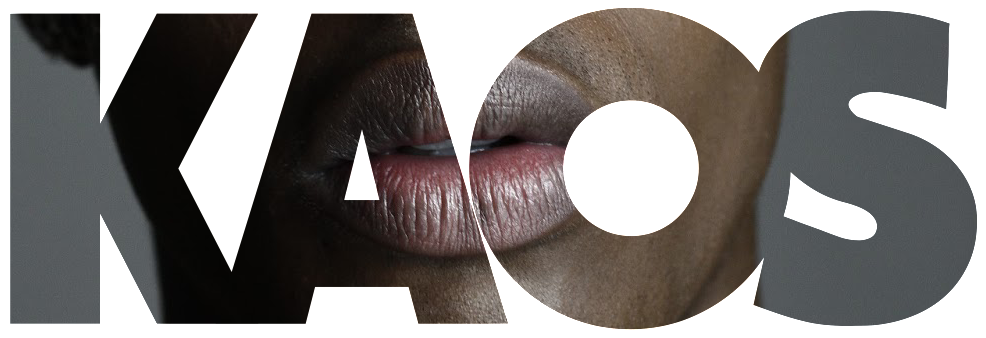


















.jpg)







































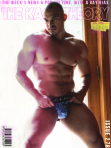








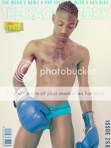
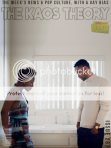
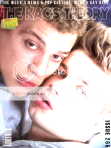
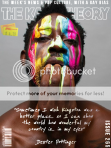
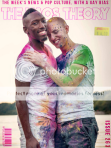

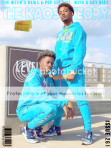
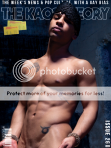
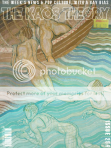
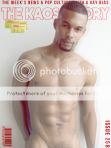
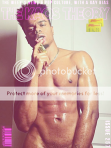
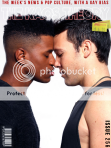
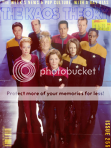
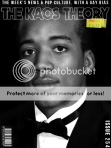
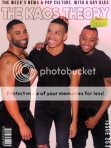
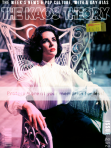
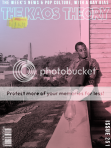
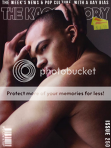
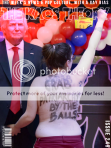
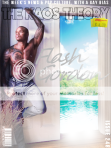
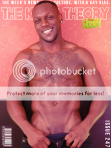
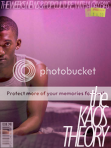
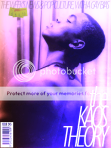
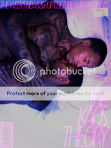

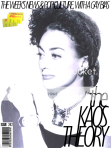
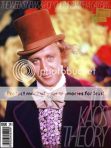
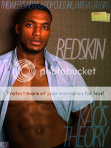
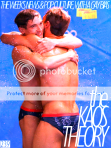
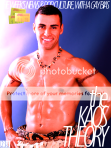
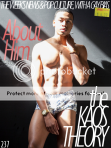
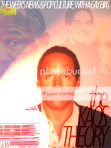
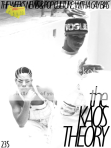
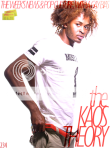
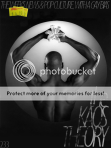
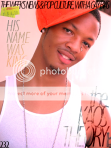
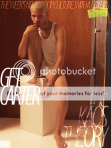
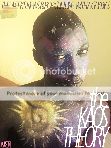
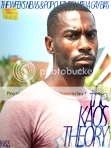
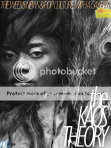
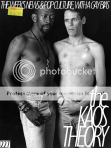
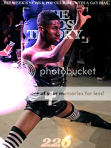
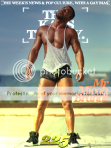
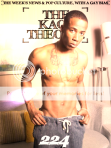

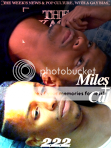
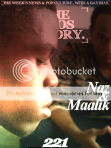
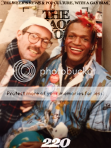
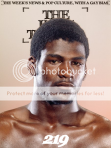
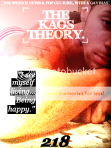
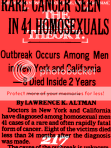
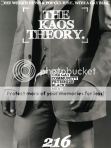
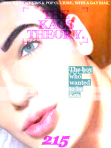
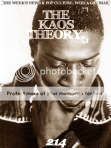
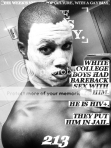

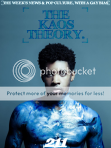
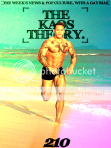
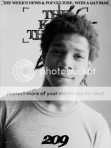
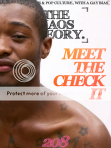

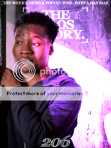
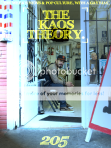
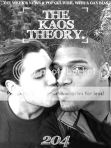

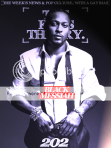
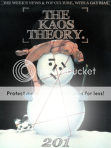
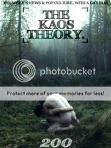
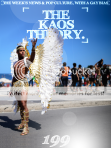
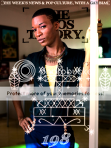
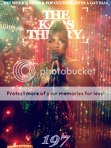
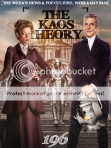
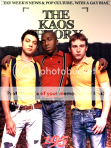
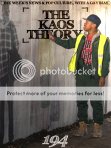
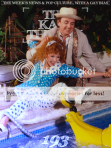
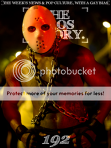
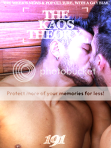
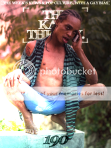
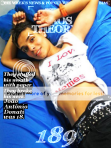
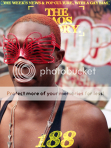

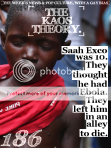
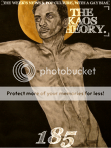
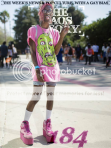
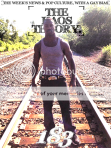
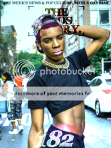
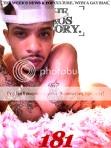

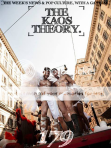
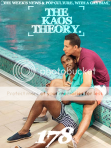
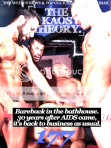
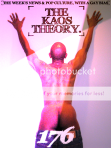
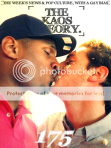
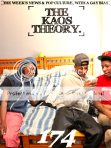


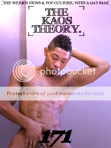
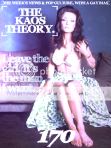

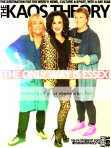

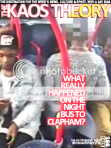
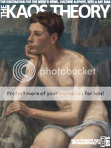

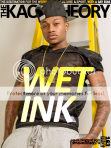
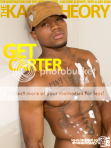

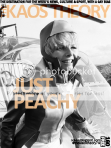
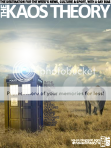

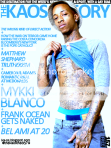

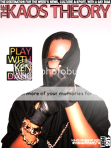
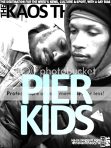
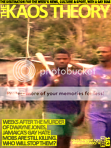
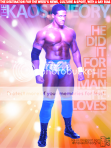
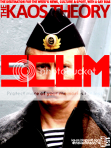
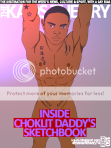
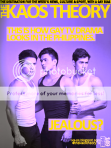
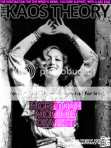
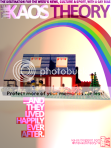
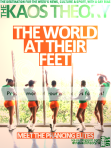
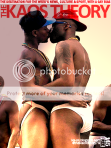
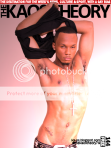
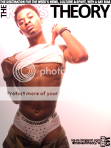
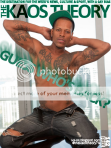
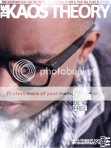
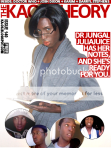
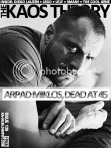
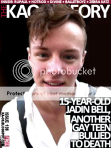
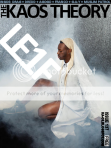
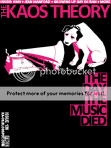

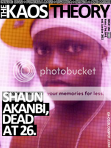
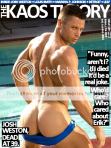





































































































































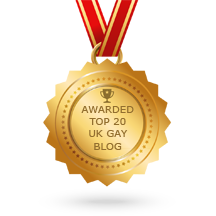












3 comments:
Great interview! I definitely plan to read Faggamuffin and all the best to John Gordon in his future endeavors as well as Rikki Beadle Blair.
Oh, and how do I land a writing assignment with KAOS Theory?
Immanuel
http://dlconfessionssequel.wordpress.com
Very interesting back & forth. Wishing him all the best & much success as he treads thru the often maddening literary jungle.
I definitely feel him on the e-book thing. The concept most probably IS the future. Yet when one writes a book, one wants the physical thrill/sensation/experience of actually holding their work inside their own creative hands.
Happy New Year, Jai!
One.
Let me say this i saw your interview with the writer of 'Faggamuffin'i just skip thru most of it, didn't read it all but i want you to know this. The Prime Minister and her cabinet will never give gays equal rights in this Country. All she did was make lip service and lying promises to help her win the Election, gays who vote for her because of those promises are now regretting it. These politicians have no interest in helping gays. They are more willing to not do anything so they wont upset the so-called christians in this country. Trust me on this they will do nothing towards gay rights even thought both parties have gays amoungst their membership. Its the hypocricy that exist in a country like Jamaica.
Post a Comment